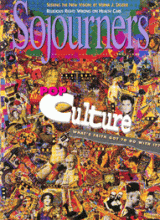Trying to capture someone elses persona in words can be like trying to capture smoke in a jar. It can be done, but its harder than it seems. Ron Seitz takes a stab at it in Song for Nobody. In what he calls his "memory vision" he writes about an influential friend of his who happened to be a monk at the nearby Abbey of Gethsemani in Ken-
tucky. The monk in question was a spiritual mentor and friend not only to Seitz, but to countless others through his writing.
Thomas Merton remains one of the most compelling voices for spirituality, peace, and justice in the 20th century. Commemorating the 25th anniversary of his death, National Catholic Reporter recently stated on its cover in big bold type that Merton continues to be "one of the most charismatic Christians on earth."
Seitz was a poet with a young mans restless questions and problems at the time he knew Merton. Of course, these many years later, Seitz relies on reconstructions of conversations with Merton and the inspiration he derived from them. (Those suspicious of such a method of poetic "remembering" only need remind themselves that the New Testament itself was written and put together after a much longer lapse of time.)
A book of remembering such as this will be judged on how successfully it recreates a sense of real presence. On that score, in the growing field of Mertonia, this will probably be regarded as a unique but minor addition because it is as much about Seitzs struggles with his own developing artistic conscience as it is about Merton.
Read the Full Article
